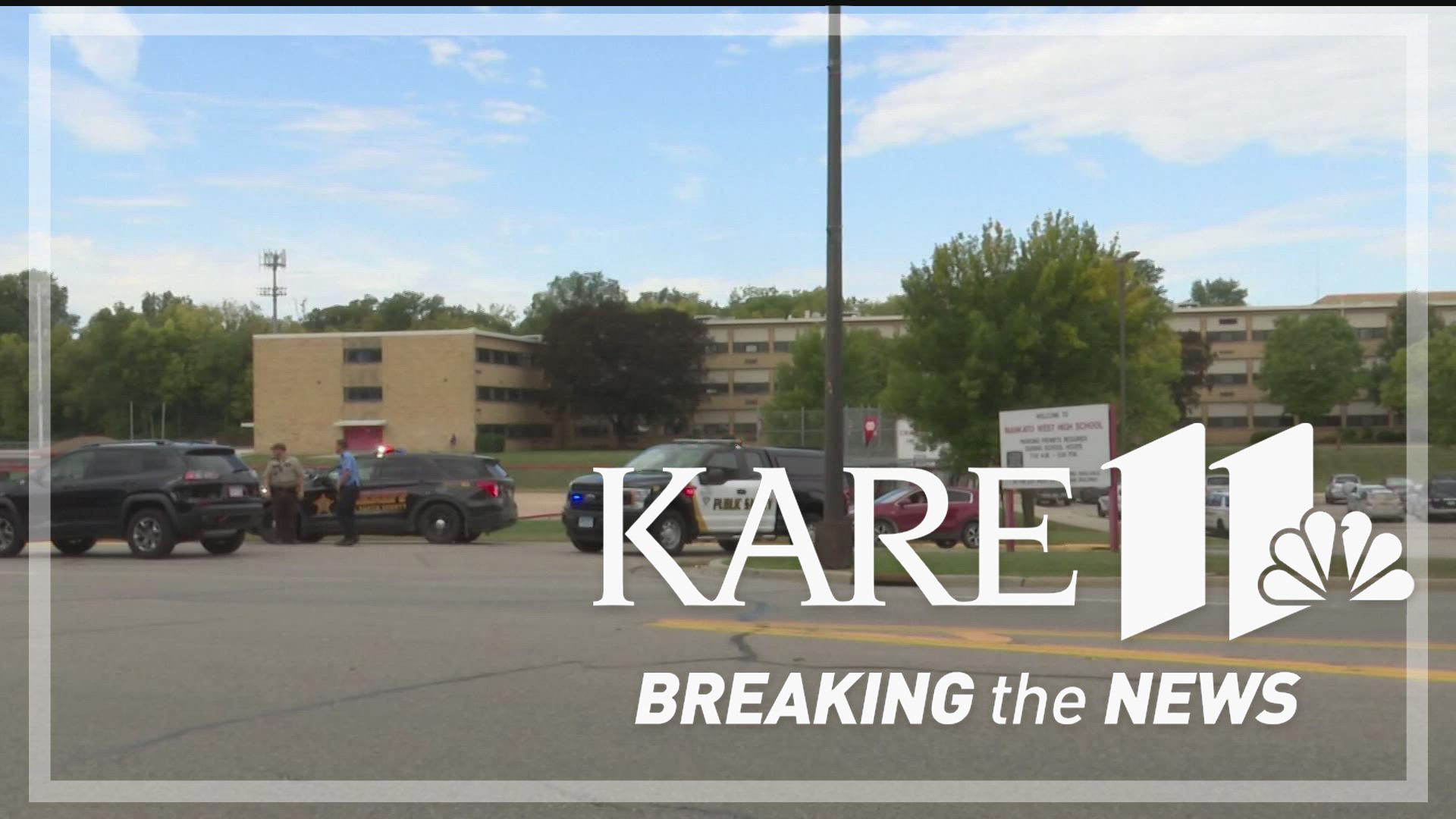MINNEAPOLIS — The day before 14 Minnesota schools received eerily similar — and equally false — reports of active shooters in their buildings, state law enforcement leaders had reason to be concerned.
"We had tips that this might be coming from our partners around the country," said Public Safety Commissioner John Harrington. "And so we had been able to alert law enforcement about the fact that they might see this."
A spokesperson for the Minnesota Bureau of Criminal Apprehension (BCA), which issued the law enforcement bulletin about those tips, tells KARE11 that schools themselves were not notified in advance because the information was not specific to schools or any particular timeframe.
Harrington said that heads-up helped lead to a more coordinated law enforcement response, and it also appeared to help investigators, who were able to trace the calls to a single IP address within hours.
"That's encouraging because it means they were able to get a good start," said Sean Lanterman, Director of Incidence Response for Computer Forensic Services. "These coordinated swatting attacks are difficult to investigate and if they use a VPN, that IP address could be anywhere in the world."
Lanterman, says so-called swatting investigations are difficult, but not impossible, especially with stiff laws and capable investigators at both the state and federal levels.
Lanterman: "I have nothing but confidence that law enforcement in Minnesota and other jurisdictions is going to find who is on the other end of those calls."
Erdahl: "What gives you so much confidence?"
Lanterman: "They always make a mistake. Somewhere along the line, they disclose to a third party something that law enforcement can get ahold of in order to find the person behind that account."
But Lanterman says those investigations can take months.
In the mean time, experts in school safety say districts can't wait around.
"Whether it is a very crude or a very sophisticated threat that's gone through an IP address, you're going to have it happen because it happens all the time," said Dr. Amy Klinger, who is director of the Educator's School Safety Network.
Klinger says her group, which currently provides free safety training for schools, began tracking the rise in swatting and other false reports of violence even before the pandemic.
"There's a couple of dangers here. Number one is the trauma of thinking there's a shooter, as opposed to somebody has done something ridiculous and we're trying to investigate and respond," she said. "But then there is also the danger of user fatigue. How many times are we going to do this? We saw that in Uvalde, where they had had numerous lockdowns and then when they actually had an event, people weren't really sure that it was an event or not."
And she says having an appropriate response to the threat is also key to preventing them from happening again.
"If you're going to have chaos, anxiety, fear, cancellations all of the things that happen, media attention, parents are freaking out, all of those things contribute to more, because it worked, and so now someone is going to do it again," Klinger said. "Compare that to a threat that is handled, it's low-key, we know what to do, there's not this high level of chaos. It's not as satisfying and so I think that's how you break the cycle."
Watch more Breaking The News:
Watch all of the latest stories from Breaking The News in our YouTube playlist:

